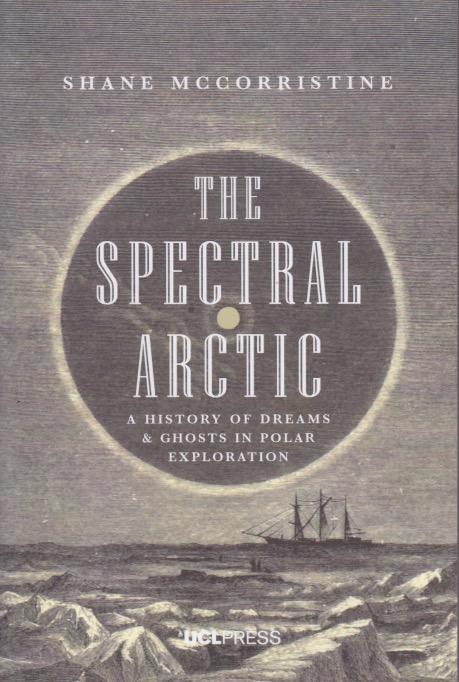
The names of many Antarctic explorers are more familiar to me than Arctic ones, so John Franklin was a name unknown to me. A nineteenth-century British explorer, his expedition was lost beginning in 1845 when his appropriately named ships, Erebus and Terror, became icebound. Franklin was seeking the famed Northwest Passage and given the slow communication of the time, nobody knew for years whether he’d survived or not. (He hadn’t.) Shane McCorristine’s The Spectral Arctic: A History of Dreams and Ghosts in Polar Exploration is a fascinating account of the attempts to find Franklin and his ships, often with speculative means. Franklin’s widow, Jane, was famous in Britain for her constancy and her unwillingness to give up on the search for her husband. She also consulted clairvoyants and paid attention to noteworthy dreams.
What drew me to this account was the involvement of the supernatural. Significant dreams and many clairvoyants—all in the Victorian Era—made suggestions and claims about Sir Franklin’s health and survival, as well as his whereabouts. This was, of course, in the era before anyone reflected on the rightness of the imperial ideology of exploration and exploitation. (We seem to have a hard time shaking that even today.) In any case, these unusual, supernatural means of gaining information were often utilized and sometimes even functioned to set the destinations for other ships sent on rescue missions. The chapters dealing with spectral landscapes of the Arctic are riveting and hard to put down. Arctic imagination, even for those of us who don’t care for the cold, is powerful. And we tend to think of it in spiritual terms. There’s something about the far north.
There are many names involved and there are some places where it’s difficult to keep track of all the characters on a casual read, but overall this study is gripping. McCorristine, as an academic, can’t tip his hand regarding the authenticity of the phenomena he explores here, but it simply doesn’t let go. His chapter on women in Arctic discourse is likewise engaging. Franklin and his crew had died by 1847 but the ships weren’t “discovered” until 2014 and 2016 by Canadian expeditions. As McCorristine points out, even such political use of resources makes statements about how indigenous people continue to be treated by nations established as colonies. There is much to say on this point, but the book focuses instead on “polar terror and sublimity” that comes to the surface in supernatural beliefs. Tying all of this together is an astonishing feat and the results leave much room for wonder.
